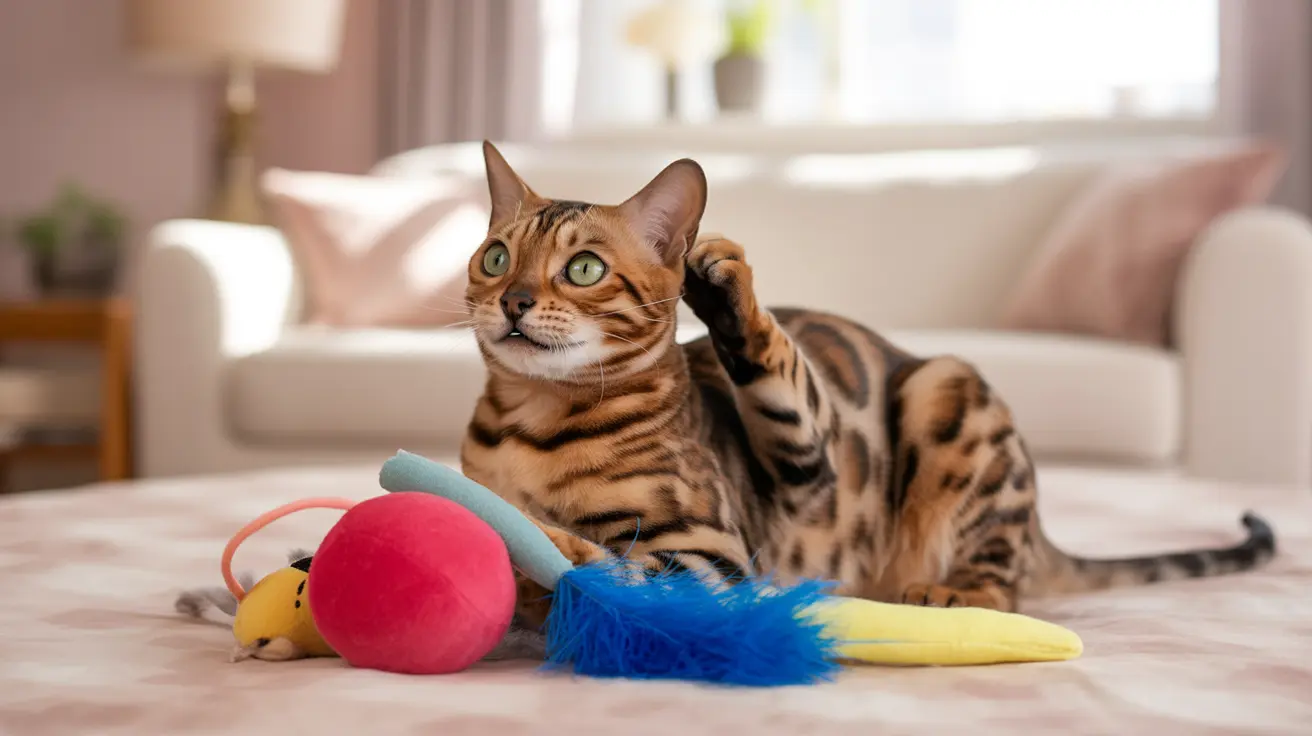Normal vs. Problematic Ear Scratching
Cats naturally groom their ears as part of their daily cleaning routine. Normal ear scratching typically involves gentle pawing at the ears, occasional head shaking, or brief rubbing against objects. This behavior is usually short-lived and doesn't cause distress.
However, when your cat shows intense, frequent scratching accompanied by head shaking, vocalization, or aggressive ear rubbing against furniture, it's time to investigate further. These behaviors often signal an underlying issue requiring veterinary attention.
Common Causes of Ear Scratching in Cats
Ear Mites
Ear mites are tiny parasites that commonly cause intense itching and irritation. These microscopic creatures live in the ear canal, producing dark, coffee-ground-like debris. They're highly contagious and particularly common in kittens and outdoor cats.
Infections
Bacterial or yeast infections can develop in cats' ears, especially following allergic reactions or exposure to moisture. Signs include redness, swelling, and unusual discharge with an unpleasant odor. Left untreated, these infections can lead to more serious complications.
Allergies and Environmental Factors
Food allergies or sensitivities to environmental elements like pollen, dust, or cleaning products can trigger ear irritation. These allergic reactions often affect other areas of the body as well, such as the face, paws, and belly.
Warning Signs and When to See a Vet
Seek veterinary care if you notice:
- Persistent scratching and head shaking
- Visible redness or swelling around the ears
- Unusual discharge or odor
- Changes in behavior or balance
- Loss of appetite or lethargy associated with ear problems
Treatment Options and Home Care
Treatment varies depending on the underlying cause but may include:
- Prescription ear medications for infections or mites
- Antihistamines or dietary changes for allergies
- Professional ear cleaning
- Regular home monitoring and preventive care
Never attempt to clean deep inside your cat's ears or use over-the-counter medications without veterinary guidance, as this could worsen the condition or cause injury.
Frequently Asked Questions
Why does my cat keep scratching her ear and shaking her head frequently?
Frequent ear scratching and head shaking usually indicate irritation from ear mites, infections, or allergies. These behaviors are your cat's attempt to relieve discomfort and should be evaluated by a veterinarian if persistent.
How can I tell if my cat's ear scratching is due to ear mites or an infection?
Ear mites typically produce dark, coffee-ground-like debris, while infections often cause redness, swelling, and discharge with an odor. Only a veterinarian can make a definitive diagnosis through microscopic examination.
What are the signs that indicate my cat's ear scratching needs a vet's attention?
Seek veterinary care if you notice persistent scratching, head shaking, discharge, strong odors, visible redness or swelling, or changes in behavior and balance.
How do veterinarians diagnose and treat ear problems causing scratching in cats?
Veterinarians examine the ears with an otoscope and may take samples for microscopic analysis. Treatment typically includes appropriate medications based on the specific cause, such as anti-parasitic drugs for mites or antibiotics for infections.
Can allergies cause my cat to scratch her ears, and how can I manage this at home?
Yes, allergies can cause ear irritation. Management may include identifying and removing allergens, changing to a hypoallergenic diet, and following your veterinarian's recommended treatment plan, which might include antihistamines or other medications.
Conclusion
While ear scratching can be normal grooming behavior, excessive scratching often signals a problem requiring attention. By monitoring your cat's behavior and seeking prompt veterinary care when needed, you can help ensure your feline companion stays comfortable and healthy.






